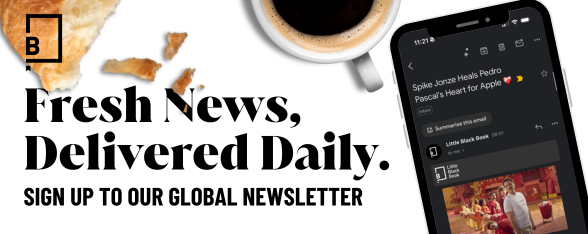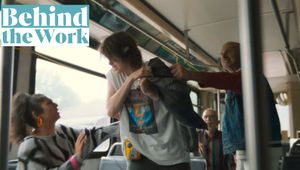
Brand Insight: The Not-So-Secret Society of Reese Canada

“Yes. They absolutely are,” replies Azim Akhtar, marketing manager for Reese Canada. I’ve just asked whether Canadians are consuming their fair share of candy during Covid-19.
Reese, owned by iconic US brand The Hershey Company, is the number one chocolate brand in Canada, outpacing the rest of its category by almost three times. Covid-19 has led to a shift in the way the brand’s consumers purchase its products – including an uptick in the size of purchase. Unsurprisingly, people grabbing a sneaky pack of Reese’s Pieces at the gas station or convenience store took a downturn but more larger scale purchases, in supermarkets or online, have increased exponentially. “Consumers are purchasing products at grocery stores and purchasing items that are meant for sharing, stocking up on larger formats,” says Azim. “We saw a huge increase in e-commerce too. Our online partners, such as Walmart and Amazon, are up anywhere between 200-400% this year.”
Like most brands, Reese’s marketing plans this year were stumped by Covid-19 until a suitable time arose to pivot and try something new. Azim and the brand were tasked with launching a new product, Reese Outrageous, and had grand plans to honour office workers with free snacks before pretty much every single office in Canada (and the world) emptied. “We decided to adjust our strategy almost immediately,” Azim says. “Once we noticed that coronavirus was becoming a much bigger problem than everyone initially thought and companies were closing their offices, people were starting to work from home and things started shutting down, we quickly adjusted all of our advertising campaigns.”
Reese moved to take down a bunch of TV ads and took a bit of time to re-evaluate what might work moving forward. For example, a Reese’s Pieces campaign had a shot of people in a movie theatre, and it obviously made sense to edit it out. What’s more, as previously mentioned, the brand had plans to launch a campaign for its new product aimed specifically at office workers. ‘The Outrageous Flying Snack Cupboard’ was created by Toronto agency Mosaic, the campaign was centred around giving consumers treats on demand via drone delivery. It had to altered, of course, because nobody was working in offices anymore. Instead, the campaign went on to highlight the exact opposite to office workers, people that couldn’t work from home. It was based on the fact that, even though home working had become the new normal for many, data from Statistics Canada showed that less than 40% of Canadians have a job that can be plausibly carried out from home. And while 85% of jobs in finance and insurance can be done from somewhere other than the office, for example, that number drops to 45% for real estate professionals and to less than 15% for outdoor-focused sectors like construction.
Reese wanted to ensure that these out-of-home workers had easy access to snacks, a definite bonus of working from home (or disadvantage if you struggle with moderation). ‘The Outrageous Flying Snack Cupboard’ was a replica of a typical snack cupboard, stuffed with Reese treats, which was flown via a giant drone to three inconvenienced Canadians working outside their homes: a construction worker, a lifeguard and a real estate agent.
“It’s always important to stand out and try to find a way to break through and develop engaging and entertaining content that a consumer just won’t swipe past or being on their during,” says Azim of the decision to launch such a campaign during Covid-19, as opposed to a more traditional TV spot. “We’re noticing more and more than when we have very traditional advertising, it doesn’t move the needle. It either keeps it the same or there’s a decrease. What we’re really trying to do is drive a deeper emotional connection as well as deliver engaging pieces of creative and content that will enable consumers to keep our brand not only top of mind but wanting to purchase our products and having a positive sentiment to our brand overall.
“We really wanted to deliver something that was truly entertaining,” he adds about the Outrageous campaign specifically. “Even though it was a stunt activation, it felt like you wanted to watch it from from the beginning all the way to the end.”
The brand’s other major marketing move from recent months is a social media-led initiative built around a secret society of diehard Reese fans. Developed by Anomaly Canada, the campaign lives at DoNotJoinTheReeseSociety.com and encourages visitors to fill out their Instagram handles so the brand can see if their most recent posts suggest a deep enough affection for Reese to be recruited to the Reese Society. (Actually, the website tells visitors to do the exact opposite of that as part of a cheeky tone of messaging playing into the secrecy of the society.)
Fully reliant on consumer engagement, the platform has snowballed into a vibrant social destination Launching at the end of August, it surpassed its campaign objectives within its first week. It attracted more than 4,800 submissions from people hoping to join (more than 1500% greater than the forecast for the entire campaign) and engagement is up 209% versus the brand average. Views from the website have already exceeded the target for the entire campaign by more than 380%, clickthrough rate is 87% higher than the brand average, and Reese’s Instagram and Twitter followers have grown by 17% and 15% respectively. And fans played along. One woman painted her fingernails with the Reese logo and posted a photo to Instagram with the message ‘Definitely NOT trying to the #ReeseSociety that definitely DOES NOT exist’. Other fans have created original artwork and another came up with an original rap about Reese’s Peanut Butter Cups and the Reese Society.
“Reese’s Society is all about saluting and rewarding people’s unconditional love for Reese,” says Azim. “We’re breaking out the campaign in a few different stages. The first stage was all about recruitment, getting people to join the society. Now we’re about to get into a stage of induction, celebrating the people who have got in. Similar to any type of secret society, we’re going to ask them to put together some type of oath they’re joining the Reese Society. From there we’re going to be celebrating some of the UGC content that's being developed by some of our consumers. Can we help produce that rap into an actual song? Can we put it on Spotify? Can we get it printed on vinyl? Can we make a music video? What can we do to make that bigger? We’ve had some people that have beautifully hand painted Reese’s Peanut Butter Cups. Again, what can we do to make that bigger? Can we put that on a billboard in their hometown?”
With Halloween and Christmas (two holidays fuelled in their own way by candy) around the corner, Azim and the team at Reese are preparing for both but keeping an eye on how the pandemic is evolving in Canada and consumer mood to holiday activities. While Reese sees year-round business and doesn’t rely on certain events for purchase spikes, Halloween is one of the brand’s biggest seasons. Last year it launched Hershey’s Treat Street, a neat initiative for urban families that live in high rise condos that make for difficult trick or treating. A beefed up version of the campaign was intended for 2020 but has been shifted online via a partnership with Snapchat.
Reese is the number one chocolate brand in Canada and its parent company, Hershey, is a vintage brand dating back to 1894. But there’s little that’s traditional about Azim’s work and the brand’s marketing activities across Canada. If anything, they wouldn’t be amiss tied to an up-and-coming challenger brand. “I hear you,” Azim says. “But I think ‘challenger brand’ is like a mind state. You don’t need to be a challenger brand just because you’re number two, three, four or five. It’s about continuing to drive innovation, continuing to find new ways to connect with your consumers, and truly being bold, unique and unconventional, all rooted in consumer insights, behaviour and data. And that’s exactly what we’re trying to do.
“We’ve seen it work with Reese Society. It’s all about saluting and rewarding people’s unconditional love for Reese. We looked at consumer research and insight to see what they love about the products, what they love about the brand, the tone, the personality. That early metric of 209% increase in brand engagement versus our brand average over the last several years - and imagine how many campaigns we've done over the last several years - is just remarkable. I think our position moving forward is to continue to stay in the same type of mentality.
“And if that’s of a challenger brand mindset, to help us find new ways to do things, to be engaging, to continuously innovate, then we’re happy to be in that position.”















